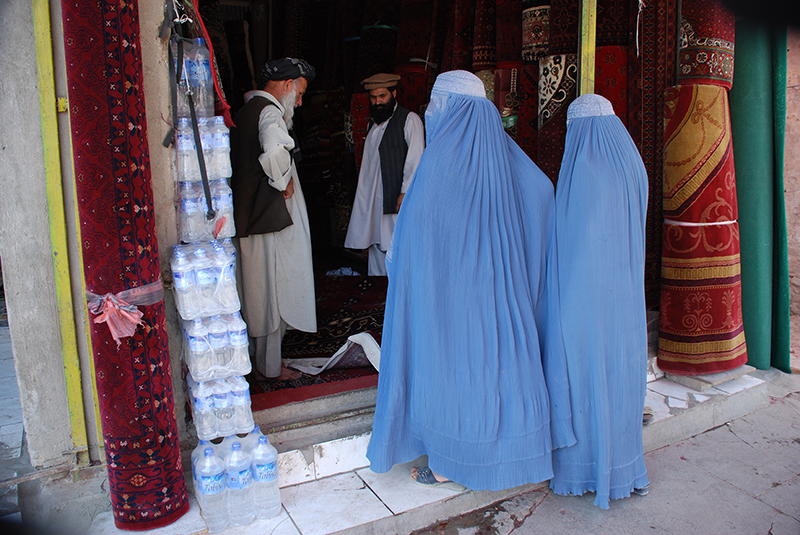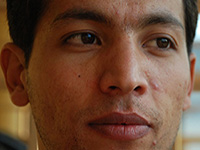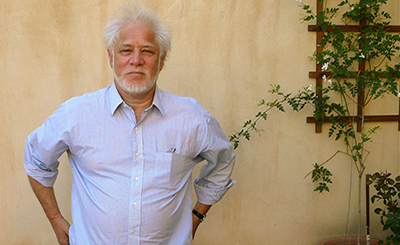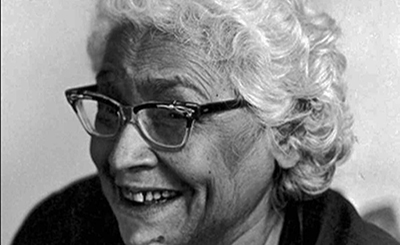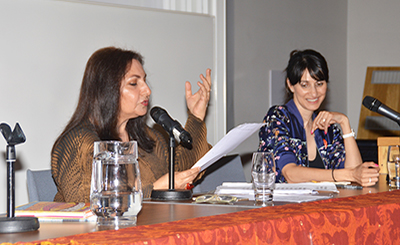In the third year of the Taliban, 1998, Father and I were waiting for customers in our carpet shop on Chicken Street in Kabul. Customers were scarce. In fact, we had not sold anything in weeks. The sun was already dropping behind the mountains. Father was sitting on a chair in front of his desk, sipping green tea. I was stretched out on a rug near the window. Father looked gloomy and old with his long grey beard, which he had not trimmed for two and a half years because the Taliban did not allow it.
Father sipped his green tea slowly. His stomach growled, and my stomach made a noise as if they were competing to announce our hunger. Neither of us had eaten lunch. We had sat there for the entire day, hoping to sell a carpet and use the profit to buy a kabob to share. It was the first day of the week, Saturday. Afghans believe that if we make a sale on a Saturday, the week will be profitable. It is just a superstition, of course, but on a Saturday with no customers, worry creeps into the back of every shopkeeper's mind.
I closed my Dari translation of Victor Hugo's Les Miserables and put it on the shelf. It was getting dark, and I was having a hard time seeing the lines.
"This tea makes me hungrier," Father said. He took off his white hat and put it on the desk.
"Maybe we should go home," I suggested.
"I hope your mother cooked something nice for dinner."
"She told me this morning that we have run out of rice, beans, and potatoes."
"I don't have money to buy anything, son."
"I don't think we should worry. Mother is resourceful."
"I hope she didn't cook turnips again. Sometimes I feel like I'll turn into a turnip one day."
"But you often say that it is full of natural antibiotics, Father." I quoted him: "Eat turnips this year, and you won't get sick next year." Father was a physics teacher, and his knowledge of science extended to the nutrients of fruits and vegetables.
"True. But the body needs other things besides antibiotics." Father got up and drank the last drop of his tea. "Let's go home,"he said.
As we were about to leave, my uncle Hashim entered our shop. There was an old man with him carrying a carpet on his bony shoulders. Without saying hello to Father or me, the old man dropped it on the floor. A cloud of dust flew up and covered all of us. The old man took a dirty white handkerchief from his pocket and wiped the glistening sweat on his forehead. Then he sat on a pile of folded rugs near the door, breathing hard.
"This is Haji Naseeb," Uncle Hashim said. "My old friend." He took off his brown turban, scratched his bald head, and put it back on.
Father walked to Haji Naseeb and shook hands with him. "How are you?" he said.
"Very tired. This carpet weighs as much as a fat woman."
"Not a fat man?" Father said and chuckled.
"I've never carried a fat man before, only my wife."
We all laughed.
"Haji Naseeb is in need of money," Uncle Hashim said.
"Don't we all need money?" Father asked.
"He is more desperate than us. How much do you think you can pay for this carpet that he has brought from his living room?"
"I haven't sold anything in weeks," Father sighed. "I can't buy more while my shop is full of inventory. The market is bad."
Uncle Hashim's habit of bringing his friends to sell their carpets to Father was not something new. But in the past when business was good, Father could afford to buy everything. Not anymore.
"We're all living through hard times," Haji Naseeb said. "At least you have your shop. How many pieces do you have here, two or three hundred? I sold every valuable thing I had in the house to feed my seven daughters and my wife. I came here as a last resort. We haven't had a decent meal in months. There are eight hungry stomachs waiting for me to come home with a few naan."
Father looked at my uncle with annoyance in his eyes. He had not sold the last carpet Uncle Hashim had bought from another one of his friends a month earlier. Father's saving were almost gone. All his money was tied to the shop.
Uncle Hashim had two sons and two daughters, but he did not have the obligation of feeding and providing for all of them. His daughters were married and living with their families in Pakistan. His sons were living with him and his wife. His older son was in the import and export business, and his younger son was a successful tailor. Both provided for their parents and gave them pocket money. Uncle Hashim did not have a job. Every day he went to his friends' houses, checking on them, and chatting for hours.
"Have mercy on your countryman," Haji Naseeb went on. "One day I'll try to help you in return."
Father did not say anything as Haji Naseeb stared at him.
"During the Communist era in the 1980s, I used to be the adviser to the Minister of Finance," Haji Naseeb continued. "When these dark-minded Taliban took over, they fired me. My wife was a judge. As you know, she is no longer allowed to work. These backwards Taliban will disappear one day and we'll have a better life. But until then, we must help each other."
Father remained silent.
Uncle Hashim had small eyes. Now he closed his right eye, a sign that he felt uncomfortable. He lit a cigarette, inhaled, and released a puff of smoke. He looked like a skinny dwarf standing next to Father, who was tall and broad-shouldered. "Don't you want to see it at least?" he suggested to Father.
"Unfold it," Father directed me with an edge of resentment in his voice, as if I had done something wrong and he was angry with me.
I quickly started rolling the rug onto the floor. Uncle Hashim helped. It was a large carpet that would fill a living room. I could not see the patterns. Everything was covered with a layer of dust and filth. I wondered why anyone would buy such a piece of dirt. I looked at Father, whose eyes brightened.
"Just a minute," he said to the old man. He walked out and went to our next door neighbour's shop. He came back with two one-hundred dollar bills and gave them to Haji Naseeb. I was stunned. Why would anyone pay such a huge sum for a dirt-covered piece with a hole in one end? But I did not question Father. He knew carpets and must have recognised some value in it, or he just felt sorry for the old man.
Haji Naseeb smiled broadly, which added more wrinkles to the corners of his eyes. Though he was much older, he reached for Father's hands and kissed them. "You're the angel of mercy," he said. He rushed out to the bakery across the street and bought a bundle of naan. Uncle Hashim thanked Father and left the shop to rejoin his friend.
"Why did you do that?" I asked incredulously.
"There is gold under the filth," Father said with a knowing smile. "Let's go home and have some delicious turnips."
Father had established himself as one of Afghanistan's leading experts in antique carpets and kilims, especially those made with vegetable dyes. Several times each year, he visited villages across northern Afghanistan, looking for new and antique carpets of high quality and unusual design. I frequently accompanied him, learning what distinguished the valuable carpets from those that were not worth buying. I clearly had a lot more to learn. But I was only eighteen years old. I had many years ahead of me to improve.
The next day, Father sent Haji Naseeb's carpet to the dusting machine, where it rolled around in a wire-mesh drum that looked like a giant clothes dryer except that it was open to the air. With each roll of the drum, the carpet was flung from one side to the other knocking a shower of dirt out of it. From there, the carpet went to a washing yard, where it was soaked with a gentle soap, then scrubbed by men with stiff brushes. A week later, when it came back to the shop, I helped Father spread it out. I could not recognise it.
The next door neighbor who had lent Father two hundred dollars walked in. He had come to ask for his money. When he looked at the floor, he said, "Is it for sale?"
"Yes," Father said.
"How much?"
"Five hundred dollars."
He immediately gave Father a one-hundred dollar bill. "You owe me two hundred already. I'll give you the rest tomorrow."
I was stunned. I had never seen such a thing happen before. A deal never went through without bargaining, especially when our next door neighbour was involved. He was famous throughout Chicken Street as a "bad bargainer". Father put the money in his wallet. Our neighbour folded the carpet, put it on his shoulder, and carried it to the back seat of his car, which was parked along the road. He locked his shop and drove away.
"Didn't I tell you?" Father said.
"But there is nothing exceptional about that piece."
"There is. You just couldn't see it. It takes time and experience to recognise one-of-a-kind pieces. Don't worry, son. You'll have your chances."
That night we finally had the kabob that I had craved for months. My four younger sisters and brother ate theirs even faster than me and my parents. We were sitting on the floor around a white cloth. We did not have electricity. The candles flickered, and no one talked. The only noise in the room was the sound of chewing. But I could not stop thinking about that carpet. What did Father and our neighbour see in it that I could not?
For the next two months we did not sell anything. Father rarely came to the shop. He spent one half of his day at school teaching physics and the other half at home tending his rosebushes. I was left alone to guard our inventory. I sat in my corner, still reading my Dari translation of Les Miserables. I had reached the last pages when a customer walked in. From his appearance and the rich scent of his cologne, I guessed that he was not a local, though he had a thick black beard and wore a white shalwar kamiz and a black turban like the Taliban. He said his name was Saboor. He looked over our piles of folded carpets like a man scanning the titles of books on a shelf. From time to time, he put his finger on one, and I unfolded it for him. After two hours, he bought five small pieces. I was very happy that I had made some sales. I knew that Father would be proud of me.
"Do you know a good repairman?" Saboor asked as I was helping him gather up everything he had bought.
"Bring your rug and I'll take care of it," I said. Then I showed him some of our carpets that had been repaired, and pleasantly challenged him, "Find the holes in these pieces that have been fixed."
Saboor looked for them but did not find them. He could see that we had a good repairman. He said he would return the next day with a carpet that needed a repair.
Father wanted to meet this new customer and was in the shop the following afternoon when Saboor returned with his carpet. It was the same piece that Father had sold to our next door neighbour for five hundred dollars. Father laughed and asked him where he had bought it.
"From a shop in Pakistan," Saboor answered.
"How much did you pay for it?" Father asked.
"Two thousand and five hundred dollars."
"Why so much?" I asked. Then I looked at Father, who seemed to regret selling it so quickly.
"Because it is one-of-a-kind," Saboor said.
"Can you sell it back for that price and make a profit?" I asked.
"I took it to New York where I live,"Saboor said, "I found a customer for it who is an interior designer. He is willing to pay thirty-five thousand dollars for it. But he wants this hole to be repaired first."
Father slowly sat in his chair behind his desk and poured himself a glass of tea. He even forgot to offer a cup to Saboor. I did not know how to respond to the news.
"How could you sell a carpet for so much money?" I asked.
Saboor smiled. "I studied business," he said. "I'm a businessman. I know what my customers are looking for. When I come up with the right product, they'll pay whatever I ask for."
When Saboor left, Father did not say anything for a long time. He gazed through the window, tapping his fingers on his desk with one hand, stroking his long beard with another. Though the country's economy was in bad shape, Father was trying hard to revive the family trade. He could have done so much with thirty-five thousand dollars.
Father was the third generation of our family involved in carpet trading. My great-grandfather was a Kuchi nomad. He was noted for the quality of the wool he raised for carpet weavers. His flocks numbered in the thousands. My grandfather left nomadic life to settle in Kabul and built a successful carpet business, but lost everything in the civil war of 1992-96. Father was the only one among his six brothers who was still running a carpet shop. He often told me and my younger brother that we should walk in the footsteps of our ancestors. Now he turned to me and said, "Son, we've always been traders. It is time to change the tradition. You must learn to be a businessman."
The next afternoon, Father surprised me as he walked into the shop. I still had a few pages left of Les Miserables, but I put the book down as soon as he entered. He was unusually quiet. I did not ask him what was on his mind. Together, we stood in front of the door and watched for customers. The sky slowly darkened and no one came. All the other shops closed. One by one, the oil lamps in the windows of the houses lit up. We waited there for a long time.
